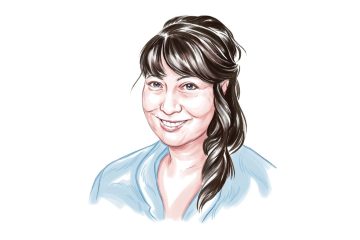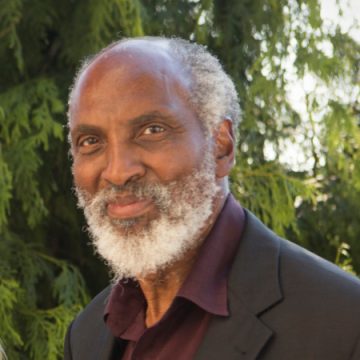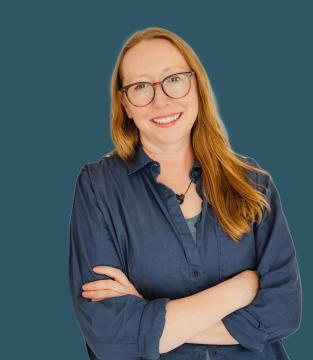Story
Lee Ann Roripaugh
Fellowship: 15 Years Out

“The time and opportunity to question my own aesthetic practices and to challenge myself as an artist, scholar and professor came at a formative time and continues to influence my practice.”
Twelve years before Lee Ann Roripaugh (BF’03) was named the South Dakota Poet Laureate in 2015, she was named a Bush Fellow. Words always held power to Roripaugh, but with the time the Bush Fellowship provided her, she was truly able to challenge herself as an artist and teacher, focusing on intersecting identities and social justice issues that help define her purpose today.
When you applied, how were you hoping to develop through the Fellowship?
In addition to researching and completing a third volume of poetry, I was hoping to work on studying, reading and developing aesthetic breadth, both as an artist and a teacher. As an Asian American and pansexual writer, professor, scholar and literary community member, I wanted to think through various means of intersecting theory and praxis, particularly critical race theory, gender theory and queer theory.
What do you do now and how did the Fellowship help you get there?
I serve as the director of creative writing at the University of South Dakota, and the time afforded by the Fellowship early on in my career was seminal to helping me become both a stronger and more aesthetically diverse artist as well as a stronger teacher to my students in mentoring their creative writing and also in my commitment to teaching social justice issues, addressing issues of decolonization and exploring intersectional identities within literature classes. Shortly after my Fellowship, I had the opportunity to direct a national writers’ conference at the University of South Dakota, start a visiting writers’ series and take over as editor-in-chief of the South Dakota Review, a national, quarterly literary journal. All of these endeavors have a strong commitment to aesthetic and cultural diversity, and as such have been projects that have undoubtedly benefited from the work I did during the Fellowship.
In what ways does the Fellowship continue to influence you? How has the Fellowship changed you?
The time and opportunity to question my own aesthetic practices and to challenge myself as an artist, scholar and professor came at a formative time and continues to influence my practice. I would like to think that I might have eventually arrived at this place on my own, but honestly, the luxury of time during the Fellowship came at such a formative time in my career — a time where I might have all too easily continued on a business- as-usual trajectory without the space to really think through difficult, upending questions.
Illustration by Allegra Lockstadt
Continue reading
-

News
Power of Bridging event
Mark your calendars for a special community event with john a. powell! Thanks to our friends at MPR News, we'll be hosting john at the Fitzgerald Theater on December 2 and hope you can join us!
-

News
Celebrating the 2025 Bush Prize honorees
Learn more about the 2025 Bush Prize honorees who are helping to make our region better for everyone!
-

News
Welcome to new Bush staff members
We are celebrating some new Bush colleagues and hope you get to meet them soon!